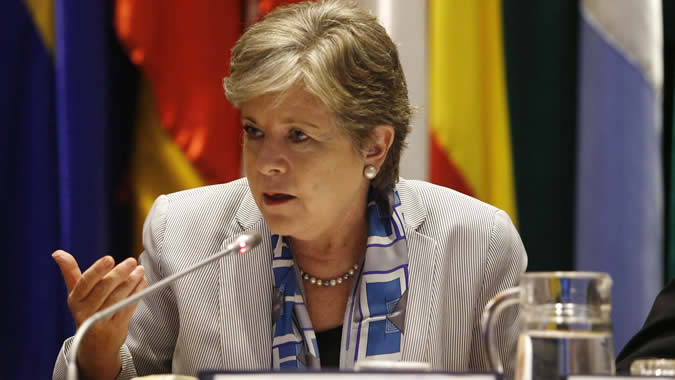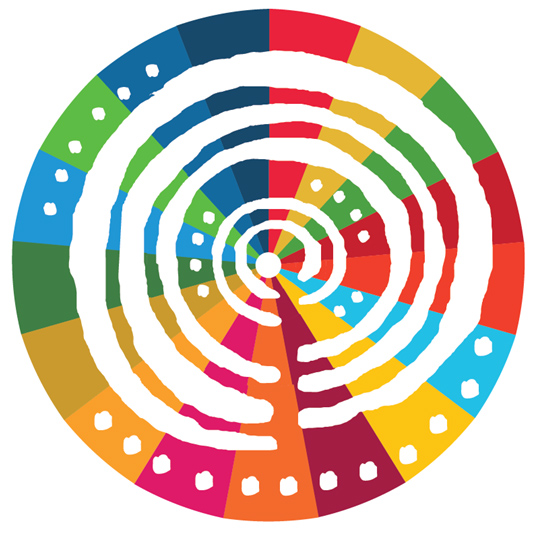ECLAC Stresses the Value of the Regional Dimension as a Bridge to Connect the Global Processes and New National Realities Prompted by COVID-19 with regard to the Challenge of Fulfilling the 2030 Agenda
Work area(s)
The organization’s Executive Secretary, Alicia Bárcena, participated in a high-level virtual meeting of the United Nations Economic and Social Council (ECOSOC) to review progress on reform of the United Nations Development System and its response to the pandemic.

The Executive Secretary of the Economic Commission for Latin America and the Caribbean (ECLAC), Alicia Bárcena, emphasized the value of the regional dimension of sustainable development as a key bridge for connecting global processes to new realities on a national level in the context of the crisis produced by the coronavirus pandemic (COVID-19), during a high-level meeting held today with United Nations member countries and senior officials.
Bárcena participated this Friday, May 22 in a session entitled “Unleashing the UN development system’s regional assets: the path forward” during the fourth session of the 2020 Operational Activities for Development Segment of the United Nations Economic and Social Council (ECOSOC), which is bringing together Member States and heads and senior representatives of United Nations development system organizations from May 19 to May 27, to review within the framework of the Quadrennial Comprehensive Policy Review the advances achieved in the four years since guidance was given by the UN General Assembly’s member countries, along with the progress made on implementation of the global organization’s resolutions regarding the repositioning of the UN development system.
In her remarks, ECLAC’s Executive Secretary indicated that the regional dimension of development goes beyond the sum of actions at the national level, since it addresses transboundary, subregional and regional challenges, such as climate change or human mobility, thereby fostering cooperation and collective responses to key areas of development.
“Making the financing of sustainable development a priority is more critical than ever for all countries, regardless of their income level. In this area, ECLAC has been analyzing the options of middle-income countries in relation to debt restructuring and relief, particularly for Caribbean countries,” she stated. “We have made proposals to ensure liquidity and avoid solvency problems, for example, through the use of instruments such as the special drawing rights (SDRs) of the International Monetary Fund (IMF), emergency lines such as those issued by the World Bank, and other innovative financing mechanisms,” Bárcena added.
The session was presided over by Juan Sandoval Mendiolea – Deputy Permanent Representative of Mexico to the UN, Vice-President of ECOSOC, and Chair of ECOSOC’s 2020 Operational Activities for Development Segment – and it was moderated by Jens Wandel, Under Secretary-General and Special Advisor to the UN Secretary-General on Reforms. Additional participants included Vera Songwe, Coordinator of the UN Regional Commissions and Executive Secretary of the United Nations Economic Commission for Africa (ECA); Mourad Wahba, Associate Administrator a.i. and Director of the Regional Bureau for Arab States at the United Nations Development Programme (UNDP); Alanna Armitage, Regional Director for Eastern Europe and Central Asia at the United Nations Population Fund (UNFPA); and Neil Buhne, Regional Director for Asia and the Pacific at the UN Development Coordination Office (DCO); along with various countries’ delegates and permanent representatives to the United Nations.
ECLAC’s Executive Secretary also informed the participating delegates of the actions undertaken by the Commission to implement the recommendations set out by UN Secretary-General António Guterres one year ago. “As regional commissions, we are fully committed to this task, for which we have consolidated the role of the Forum of the Countries of Latin America and the Caribbean on Sustainable Development, which meets each year under ECLAC’s auspices to analyze countries’ progress on implementation of the 2030 Agenda and brings together member countries and the entire UN regional system,” she indicated.
“ECLAC has a strong intergovernmental architecture which ensures constant interaction with the sectoral authorities of its member States and enables it to learn firsthand about their priorities on development matters,” she emphasized.
Alicia Bárcena also highlighted the development of the Sustainable Development Goals (SDG) Gateway in Latin America, a joint effort with 22 agencies, funds and programs of the United Nations System in the region, which has become a powerful instrument for tracking the progress and needs of countries with regard to the 2030 Agenda’s implementation and their headway towards achieving the 17 SDGs.
“Our regional commission can offer the mandate, the experience, the tools and the platforms that are crucial for supporting countries on the follow-up and implementation of the 2030 Agenda for Sustainable Development, even during these unprecedented times of pandemic,” she affirmed.
Bárcena also described ECLAC’s actions to interconnect the regional commissions and UN country teams on subregional and cross-border issues. One such initiative that stands out is the Comprehensive Development Plan (CDP) for Guatemala, El Salvador, Honduras and Mexico, drafted at the request of these very countries and which has already produced four reports with the formulation of 100 projects for the next five years to address the structural causes of migration from a development perspective.
With regard to COVID-19, ECLAC’s highest authority explained that the Commission is carefully following the socioeconomic impact of the pandemic in the region. In response to a request by the Community of Latin American and Caribbean States (CELAC), the organization has developed the COVID-19 Observatory in Latin America and the Caribbean, with the support of UN resident coordinators and the Development Coordination Office (DCO), to track the national measures and policy responses implemented to combat the effects of the coronavirus in the region’s 33 countries.
In addition, ECLAC is publishing a series of periodic reports on the socioeconomic situation and COVID-19’s effects in the region, providing policy recommendations to address the crisis and build the economy back better. To date, three special reports have been released along with several documents focused on issues like economic growth, trade, poverty, statistical methodologies and inequality, persons with disabilities, food security, work, and climate change – some of these in collaboration with the United Nations System’s agencies, funds and programs.
“At ECLAC, we stand ready to support countries by leveraging our intergovernmental architecture and convening power to organize ministerial dialogues on COVID-19 impacts and responses. We have already carried out meetings with social development and gender equality ministers, representatives of national statistical systems, ministers of finance and of science, technology and innovation, with the aim of facilitating the exchange of best practices, identifying national priorities, coordinating regional and multilateral cooperation, and highlighting key areas for advocating their needs,” Alicia Bárcena stated.
Related link(s)
Country(ies)
- Latin America and the Caribbean
